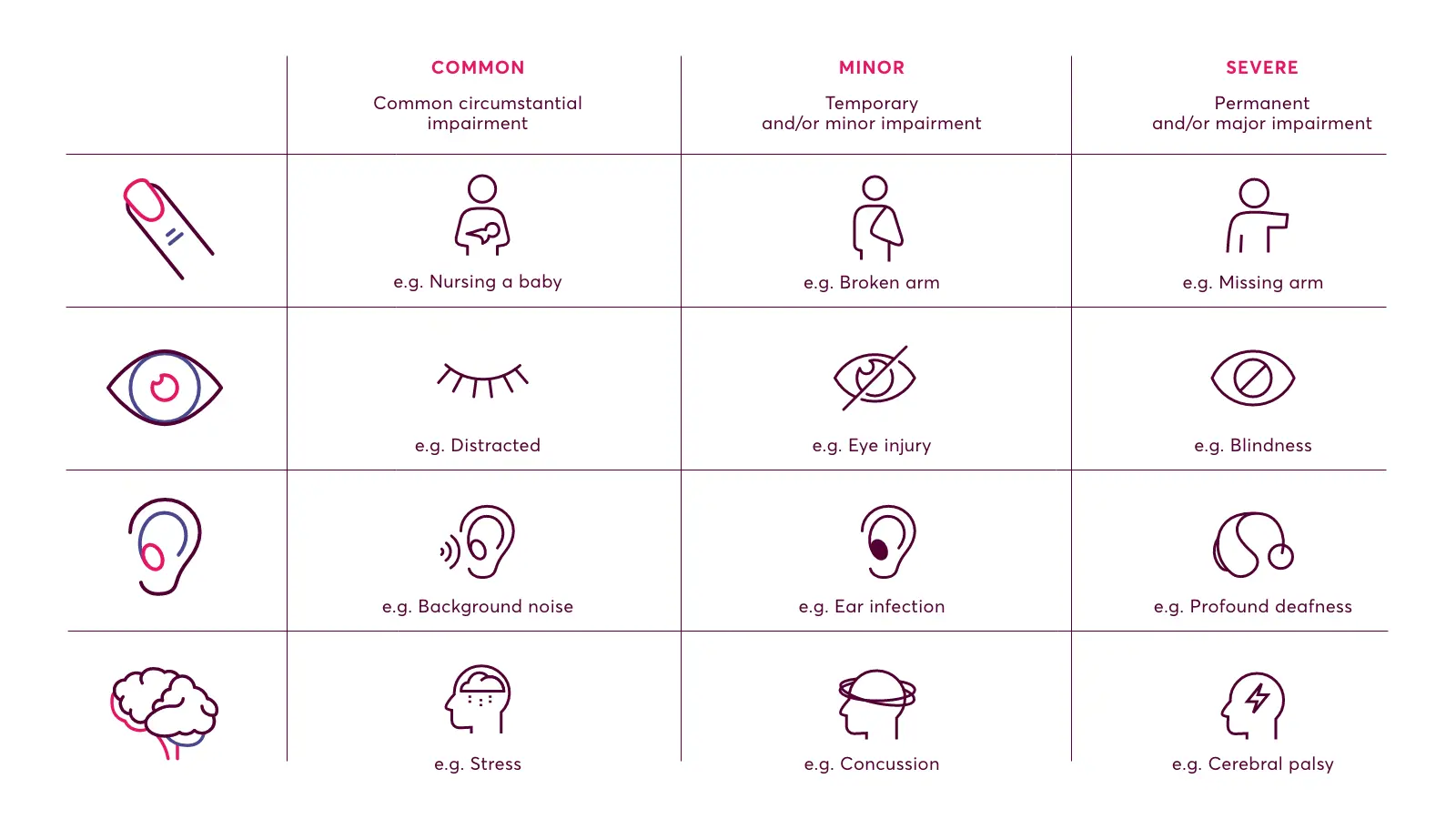What is the Web Accessibility Act?
The Web Accessibility Act, also known as WCAG standards, is a set of international accessibility standards to assist primarily disabled digital media users. This means when designing a new website, one must adhere to a number of rules in its design and coding, which enable citizens with disabilities in terms of vision, hearing or other physical and cognitive challenges, to use it relatively effortlessly.

The various accessibility challenges in relation to digital dialogues
An example could be that you have to insert explanatory captions on images or videos so that a visually-impaired person can ‘read’ the elements.
The executive order on setting the standard for accessibility of public websites and mobile applications takes effect from 23 September 2020 (on websites made before 2018). It will be mandatory to comply with WCAG 2.1 at levels A and AA. In addition, most public authorities must be able to document any requirements that are not met in an accessibility statement.
Who does the Web Accessibility Act affect?
The directive itself does include some fairly high-level expectations for public websites and apps, including the responsibility to:
- Make the website and mobile app content accessible to everyone
- Provide a public accessibility statement
- Provide a feedback mechanism for users to report inaccessible content
- Provide a link to the enforcement procedure
But what does this mean to you as a private company? You are not subject to the same rules on accessibility. However, if you expect to replace your platform, or need to redesign your website, you might want to read up on about how accessibility can positively affect your business.
It will also have a noticeable impact on private organisations that regularly do business with or provide products or services such as software to governmental sites. They will need to be sure that their accessibility standards measure up.
Private sector companies that offer similar services to those provided by public sites may also risk alienating users with disabilities if their websites or apps provide a less accessible experience.
Good accessibility can elevate your usability and more
Thinking in terms of accessibility solutions is a gain that goes beyond meeting your potential disabled customers. The accessibility principles share common ground with rules for user-friendliness in relation to good navigation principles, feedback and orientation. This in itself is good for the conversion on your website.
In addition, clear meta descriptions and better navigation minimise bounce rate and make the search engines happy. It’s killing two birds with one stone. While good accessibility doesn’t mean that you are in a safe haven in terms of user-friendliness, it is a good start.
Making your site accessible doesn’t mean compromising on appearance either. An accessible site can still be creative and good-looking.
Want to know more?
From our perspective, accessibility is essential in future good business. We want to support you in setting the course for the upcoming changes.
We have a number of experts who are more than ready to have a non-committal talk with you. Whether you just want a quick fix with the lowest hanging fruit, or if you are going to start a new and more extensive project, we can help.

